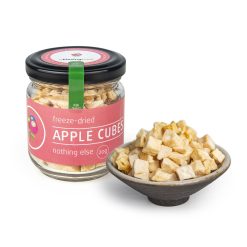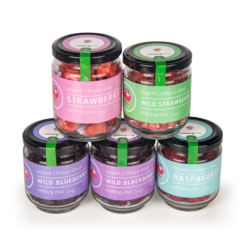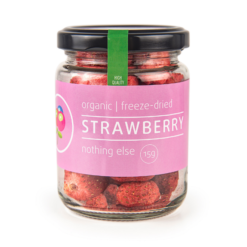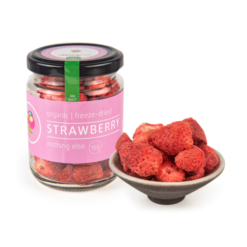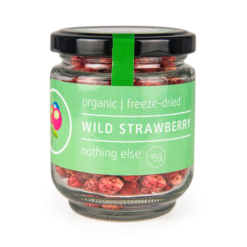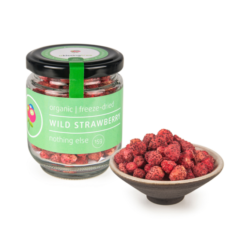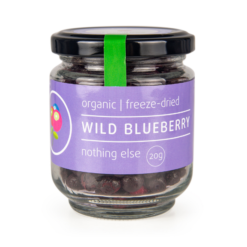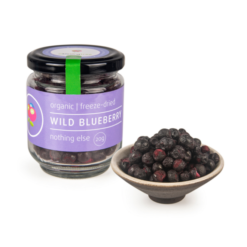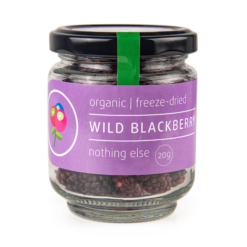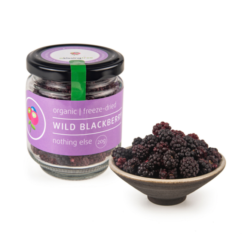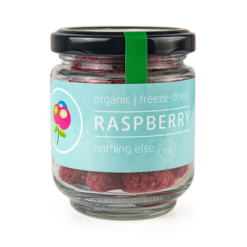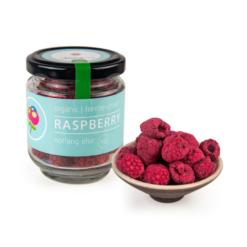History tells us that red raspberries were grown and revered in ancient Troy. Roman agriculturalists made efforts to further domesticate the fruit and increase the output of the raspberry bush, which was significant enough that they carried it all the way to Great Britain.
But even before this, raspberry is thought to have been cultivated in the first cities in the Fertile Crescent. Thankfully, there is a source of this wondrous fruit in its purest, wild form – and there are many reasons why you should consider it your friend.
Raspberries Help Maintain a Healthy Heart
Keeping a good heart health is essentially based on balancing a number of processes that otherwise impact it. Reducing stress is a key factor and that can be achieved by exercise, meditation and breathing techniques. All of the above can further promote good heart health when the diet is balanced and is low on sodium and trans fats.
A variety of foods promote good heart health, including those that strengthen the tissues of arteries and the heart muscle itself. Red raspberries are one such food – rich in fiber, polyphenols and micronutrients. This berry reduces inflammation which occurs in an acidic environment, caused by processed foods, thanks to its rich antioxidant properties.
Raspberries decrease oxidation in the cardio-vascular system by promoting a healthy development of lipids and protein. Clinical studies performed with raspberry extracts have showed positive anti-inflammatory results in just one month after its nutrients have been introduced in the diet.
In that regard, freeze-dried raspberries contain all of the nutrients that occur naturally in the fruit, which have been locked-in with the deep-freeze process. A nutritional overview of fresh and deep-frozen raspberries shows that the levels of Vitamin A, magnesium. iron, calcium and protein remain unchanged.
Raspberries Cut the Risk of Diabetes
For those who indulge in their sweet-tooth activities the challenge is to resist sweets and foods that are high in sugar. On the other hand, sugar has been proven to have additive properties that are as severe as those found in heroin addiction. High levels of sugar in the blood unleash a chain reaction that affects many vital organs, including the heart and the pancreas.
High blood sugar is one of the most common manifestations of the Diabetes mellitus disease. Left untreated, this disease can lead to heart and kidney disease, stroke and other. However, for a healthy individual it takes a steady resolve for an unhealthy diet to induce the risks of the disorder, mainly by regularly consuming processed food containing lots of sugar.
So how does one control the urge of having sweets and the absolute necessity of maintaining a healthy way of life?
Clinical and lab studies have shown that berries are very beneficial in treating diabetes. Raspberries contain anthocyanins and anthocyanidins, which stimulate the secretion of insulin from its reserves in order to supply the deficit of this vital hormone. In other words, the carbohydrates contained in raspberries contain enough sugar to mimic the sensation that the hunger for this carb has been satiated, while at the same time, this magical berry supplies healthy compounds that promote a healthy functioning of vital organs that usually suffer from high sugar levels intake.
Raspberries Promote Good Gut Health
We now know that the gut is home to a plethora of bacteria. Good bacteria means good gut health and that occurs by way of eating healthy – lots of greens and fruits. Bad gut health is the result of processed food, a meat-heavy diet and intake of fried oils and saturated fats. The difference between good and bad bacteria in the gut is a healthy immune system versus one that is mediocre or simply weak.
If ever in doubt whether your digestion is doing a good job in breaking down the food you’ve just eaten, there are always a life-vest that your can turn to: raspberries. This fruit is known to promote good digestion. What is more, raspberries can neutralize stomach acids and de-acidify the gut environment, thus promoting the flourishing of good gut bacteria, which means a better immune system. Additionally, the fiber that is found in raspberries is beneficial to lowering the levels of cholesterol.


